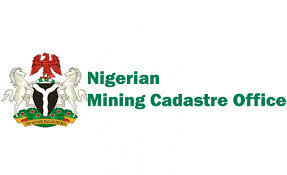ECOWAS Endorse Nigeria’s Electronic Mining Cadastre Plus System as Model for Regional Integration

The Economic Community of West African States (ECOWAS) has praised Nigeria’s Electronic Mining Cadastre Plus (eMC+) system as a model for regional integration, transparency, and digital transformation in the extractive industry.
During a high-level visit to the Mining Cadastre Office in Abuja, ECOWAS technical experts commended the country’s web-based mineral title management platform, describing it as an “exemplary system” that should be replicated across West Africa.
The leader of the ECOWAS delegation, William Badieo, noted that Nigeria’s progress in digitizing its mineral licensing system stands as a benchmark in the region.
He emphasized that the visit was part of efforts to finalize a second feasibility study for the establishment of a regional Geo-Extractive Observatory and Key Distance System.
Badieo praised the eMC+ system, stating that it is a “practical demonstration of a fully functional, transparent, and accessible digital system.”
The ECOWAS delegation aimed to evaluate Nigeria’s digital capacity and transparency framework as a foundation for a harmonized regional mining cadastre.
Badieo explained that the development is a key step towards full regional integration and cooperation in extractive governance. He noted that the ECOWAS approach is anchored on cooperation, harmonization, and integration, and that Nigeria’s eMC+ system fits perfectly into the regional vision.
The Director-General of the Mining Cadastre Office, Obadiah Simon Nkom, described the visit as a recognition of Nigeria’s leadership role in the mining sector reform and digital innovation.
He explained that the journey began with the Nigerian Minerals and Mining Act of 2007, which laid the groundwork for reforms that transitioned from analogue record-keeping to a sophisticated, web-based GIS-enabled platform.
Nkom highlighted the transparency and efficiency embedded in the eMC+ system, which allows real-time license applications, remote access from anywhere in the world, and integration of beneficial ownership disclosures and politically exposed persons.
He also lauded the support of the Minister of Solid Minerals Development, Dele Alake, and the African Development Bank, noting that such collaboration demonstrates that “everything is on the right track.”
The visit has significant implications for the region, as a unified digital system across the sub-region would significantly boost transparency, accountability, and investor confidence.
The Chief Geologist at Nigeria’s Ministry of Petroleum Resources, Madu Fika, expressed his surprise at the level of technological advancement witnessed during the tour, stating that it has changed his perception of how far Nigeria has come in using technology for mining governance.
The Head of the Mining Cadastre Office in Sierra Leone, Eugene Norman, emphasized the importance of peer-to-peer learning in achieving regional success in mining governance. He noted that it is essential to learn from Nigeria’s experience, what works and what doesn’t, to guide other countries accordingly. The visit is expected to help elevate all member states to a common standard.
The eMC+ system, launched in November 2022, has been operational for over two years, positioning Nigeria as a digital leader in mining title administration across the continent. The regional body hopes to conclude its technical review and adopt Nigeria’s eMC+ as the foundational framework for a harmonized, investor-friendly extractive data platform for West Africa.









